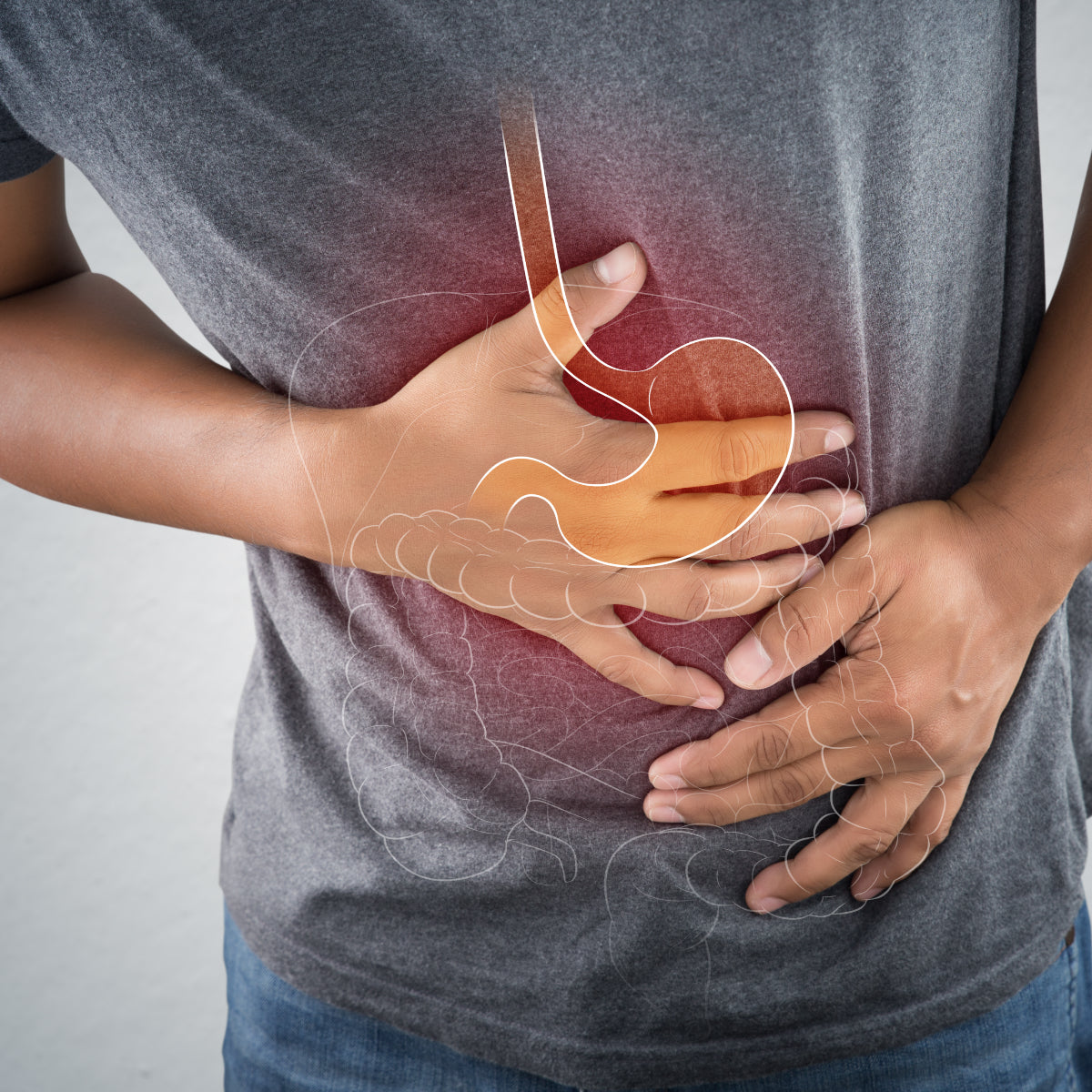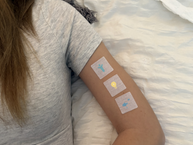Crohn’s disease is a type of inflammatory bowel disease (IBD) that can affect your nutrition. If you have Crohn’s disease, you should be aware of the possible nutritional deficiencies that can occur and why PatchAid Vitamin Patches may be used to prevent or treat certain nutrient deficiencies. It is best to always talk to a healthcare provider or nutritionist if you have questions or concerns about your nutrition or health.
What Is Crohn’s Disease?
Crohn’s disease is a condition with chronic inflammation of the gastrointestinal tract. About 1 million Americans have it. You are more likely to be diagnosed with it if you have these risk factors.
- You are 20 to 30 years old.
- You have a family member with it, such as a sibling, parent, or child.
- You are of Ashkenazi Jewish descent.
- You smoke.
Crohn’s disease can lead to abdominal pain, nausea and vomiting, blood in your stool, and weight loss. You may get iron deficiency, kidney stones, or inflammation of the liver if the condition is severe. Malnutrition is a common complication.
Diet for Crohn’s Disease
Because Crohn’s disease affects the GI tract, it can affect how your body absorbs nutrients from food. Also, you may have trouble eating enough due to symptoms such as stomach pain, nausea, or cramping.
A nutritionist or dietitian can help you develop a diet for Crohn’s disease. The goals are to get enough energy and nutrients, and to minimize symptoms. A nutritionist may recommend the following changes.
- Drinking more water or other low-calorie fluids.
- Avoiding soft drinks, sparkling water, and other carbonated beverages.
- Eating more frequently and keeping meals small.
- Avoiding certain fibrous foods that can irritate, such as vegetable and fruit skins and seeds, nuts, and seeds.
You may also find that certain foods can trigger symptoms. Sugary foods, lactose-containing foods, alcohol, caffeinated beverages, and fried foods are often risky.
Nutrient Deficiencies with Crohn’s Disease
Crohn’s disease can interfere with absorption of nutrients from food. This can lead to unintentional weight loss if your body cannot get the normal amount of energy, or calories, from fat, protein, and carbohydrates in food. Protein deficiency can also occur. So can deficiencies of essential vitamins and minerals.
Vitamin Supplements for Crohn’s Disease
These are vitamins and minerals that are commonly deficient among people with Crohn’s disease.
- Iron
- Calcium
- Vitamin D
- Vitamin B12
- Vitamin A
- Vitamin E
- Vitamin K
- Zinc
- Folic Acid
Your healthcare provider can assess your risk of deficiency or your deficiency by asking about your diet and your symptoms, and with blood tests. If you and your doctor decide that it is a good idea, you can decide on a vitamin supplement.
Vitamin Patches for Crohn’s Disease
Compared to vitamin and mineral pills, PatchAid Vitamin Patches can be an ideal solution for preventing or addressing nutrient deficiencies. While oral supplements can have low absorption, especially with Crohn’s disease, vitamin patches have transdermal absorption across the skin. That also means that there is no risk of upset stomach when you use patches.
There are Multivitamin and Mineral PatchAid Patches, or you and your doctor may decide that specialized patches are a better fit for you. For example, you might choose a Calcium/D3 patch to focus on bone health, or a B12 Patch to get your B vitamins.







